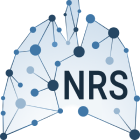Airway inflammation in COPD after long-term withdrawal of inhaled corticosteroids.
Abstract
Long-term treatment with inhaled corticosteroids (ICS) might attenuate lung function decline and decrease airway inflammation in a subset of patients with chronic obstructive pulmonary disease (COPD), and discontinuing ICS treatment could result in further lung function decline. We hypothesised that airway inflammation increases after ICS withdrawal following long-term ICS treatment in COPD.In the GLUCOLD-1 study (GL1), 114 patients with moderate-severe COPD were randomised to 6-month or 30-month treatment with fluticasone propionate (500 µg twice daily), 30-month treatment with fluticasone/salmeterol (500/50 µg twice daily) or placebo. During the 5-year follow-up study (GL2), patients were followed prospectively while being treated by their physician. Bronchial biopsies and induced sputum were collected at baseline, at 30 months (end of GL1) and at 7.5 years (end of GL2) to assess inflammatory cell counts. Data were analysed using linear mixed-effects models.In patients using ICS during GL1 and using ICS 0-50% of the time during GL2 (n=61/85), there were significant increases in GL2 bronchial CD3+ (fold change per year calculated as GL2 minus GL1 2.68, 95% CI 1.87-3.84), CD4+ (1.91, 95% CI 1.33-2.75) and CD8+ cells (1.71, 95% CI 1.15-2.53), and mast cells (1.91, 95% CI 1.36-2.68). The sputum total cell counts increased significantly in GL2 (1.90, 95% CI 1.42-2.54), as did counts of macrophages (2.10, 95% CI 1.55-2.86), neutrophils (1.92, 95% CI 1.39-2.65) and lymphocytes (2.01, 95% CI 1.46-2.78).ICS discontinuation increases airway inflammation in patients with moderate-severe COPD, suggesting that the anti-inflammatory effects of ICS in COPD are not maintained after ICS discontinuation.

